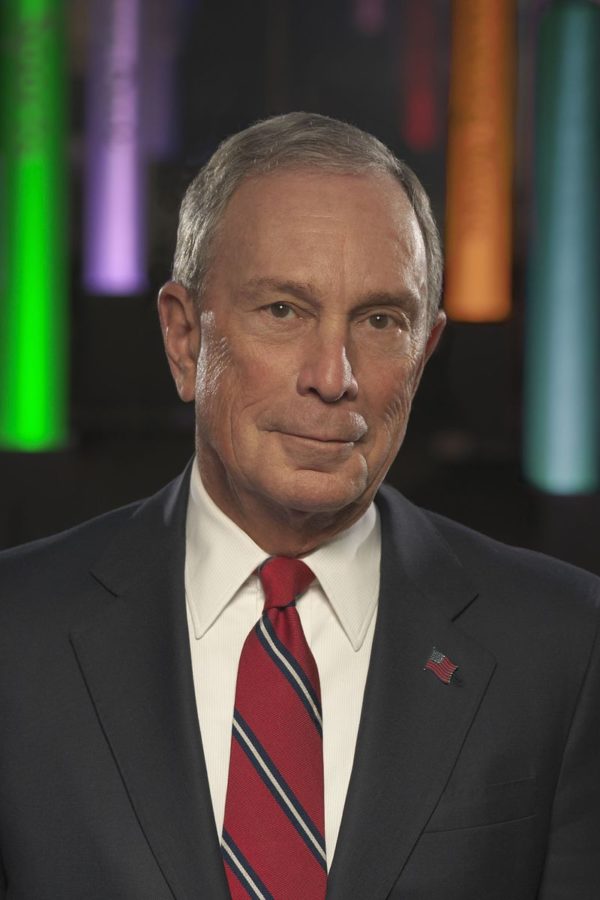Mike Bloomberg set to skip Iowa caucuses in potential presidential bid
Former New York Mayor Mike Bloomberg has filed to run in two Democratic presidential primaries as of Nov. 12.
November 12, 2019
Former New York Mayor Mike Bloomberg filed to run in a Democratic primary for president Friday.
Bloomberg’s entry into the Democratic presidential primary field — if he officially announces an entry into the race — would be one of the latest starts to a presidential campaign in modern primary history. Bloomberg’s filing to run in the Democratic presidential primary in Alabama on Friday was followed Tuesday with his filing in Arkansas in advance of filing deadlines in those states.
“He can kind of buy his way in any time he feels like it,” said Mack Shelley, Iowa State professor and chair of the political science department.
These moves come less than 90 days out from the Iowa Democratic caucuses, leaving Bloomberg with a comparatively short amount of time to organize a campaign for the caucuses and make himself better known to Iowa caucusgoers. With such a short amount of time remaining until caucus night, the Associated Press reports Bloomberg’s campaign strategy would instead rely on him passing over Iowa and other early voting primary states in favor of those that vote on super Tuesday — scheduled for March 3, 2020 — and later states.
A Monmouth poll released Tuesday found Bloomberg with a net favorability of -31 percent among likely Iowa Democratic caucusgoers.
“He could buy out pretty much everybody else [campaigning in super Tuesday states],” Shelley said. “I don’t think [presidential candidate Tom] Steyer could pull this off — I think Steyer is worth like $1.6 billion. I don’t know if such a thing exists really, but I think Bloomberg literally could write a check for a billion dollars [to fund his candidacy].”
Bloomberg has a net worth of $52.2 billion dollars, according to Forbes.
The Democratic Party could be amenable to Bloomberg entering the race on account of his wealth, Shelley said.
“One of the reasons the Iowa caucuses took on their current form really in [1972] — it was a reaction to Hubert Humphrey getting the presidential nomination in 1968,” Shelley said. “He didn’t enter a single primary, Bloomberg at least is entering some primaries […] I’m sure [the Democratic Party] is sort of delighted to have Bloomberg’s money sort of on the table.”
The former New York mayor’s reported decision to skip Iowa and other early voting states has drawn derision from the state Democratic party in Iowa.
“It’s disappointing to hear that Mayor Bloomberg doesn’t plan on competing in Iowa’s first-in-the-nation caucuses or the other three early nominating states,” said Iowa Democratic Party chair Troy Price in a series of tweets. “Iowa voters take our role very seriously — we kick the tires and ask the hard questions. Iowa is one of the last places where retail politics and grassroots organizing run strong, and our process makes candidates and their campaigns better prepared for a general election fight.”
Price’s tweets were joined by a statement from the chair of the New Hampshire Democratic Party, Raymond Buckley. New Hampshire is the second state to cast their preferences in the Democratic Party’s primary process. The state’s primary is scheduled for eight days after the Iowa caucuses.
“We are disappointed and frankly very surprised that any candidate would launch a campaign for the White House where their path doesn’t run through New Hampshire or any of the other early states,” Buckley said in the statement. “New Hampshire and other early state voters are some of the most engaged voters in the country. They ask tough questions that prepare the candidates for what’s to come in the general election. It’s unfortunate that Michael Bloomberg doesn’t want to participate in this invaluable, important, and unique primary process and be tested the same way that the other Democratic candidates have been and will be.”







